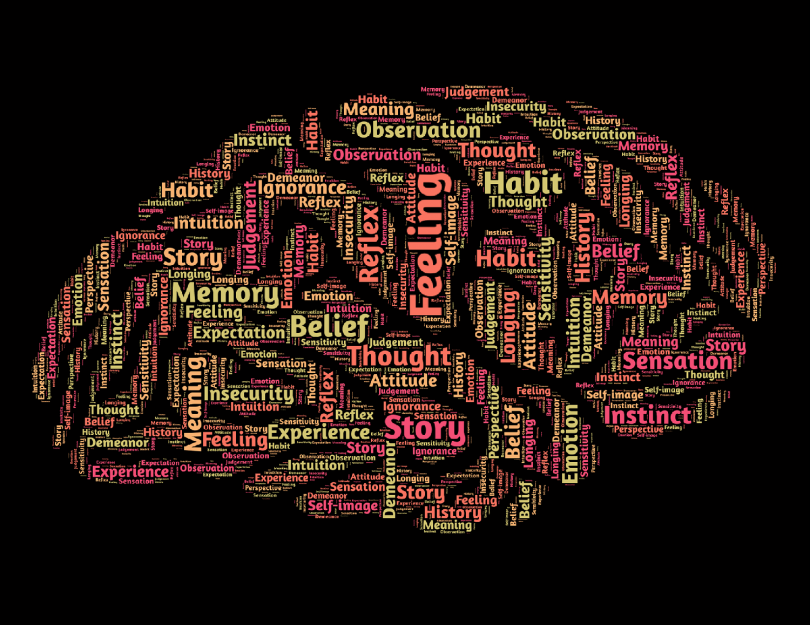Is that something that we need to know? Something we weren’t taught. Something that we missed out of sight. Lots of education is about doing business and improving finances. We have deep concerns in politics, economy, and law but what is the key element of our complex present-day life?
Spoiler: It is you.
Do we know enough about what it’s like to be a human being? Let’s imagine if aliens came and tried to learn what we are and delved into our official statistics what would they conclude?
Might it happen to be that their verdict about modern human beings would look like this: over-medicated, mostly depressed, over-working, addicted to multitasking, obsessed with overthinking, confused with food, and diets and growing overweight, overwhelmed with pursuit of success?
So, when have we leapt this “enough” threshold to the level of “over”?
Nowadays, we generally live in the most prosperous and safe time in history, and humankind has accumulated great wealth.[1] But why is our well-being declining despite all these benefits? Why, when we have modern highly technological and sophisticated medicine, is there such an increase in chronic disease like cancer, heart attacks, and auto-immune issues?
To find the answer we need to start our investigation from the very beginning. From how our body and our mind united and how their collaboration turns out. And the central part of this thinking process is dedicated to the thing that is most sensitive for all of us, a thing that should not be ignored. It is our health.
Health is not only in the official medical paradigm but also in terms of personal experience – a subjective feeling of being healthy. With all respect to the powerful rationality of our medicine, “we are not cognitive computers, we are feeling machines.”[2]
This means that there is a personal responsibility of being healthy – from passive pill takers to active participants in building our own well-being – and to do so our emotions and feelings must be included in the equation; to make the feeling of being healthy familiar.
Let’s start with a review of the role that own body plays. Because humans are unique self-healing organisms that constantly renew their cells – one source provides a renewal rate of 810 000 cells each second[3], another gives 3.8 million new cells each second.[4] Whichever, it’s a lot and profoundly impressive.
Despite such inner power, we face a health dropdown. So, why, when, and where do we block this natural way of being well?
Do we value our health? Intuitively we should because 100% health means you are on top of your life forces and 0% means you are dead. However, in general, we mostly damage our health creating a dramatically exhausting lifestyle. The World Health Organisation posits that medicine is in charge of only 10-20% of our health. “As a determinant of health, medical care is insufficient for ensuring better health outcomes”[5]
Nevertheless, it sounds more inspiring than dramatic. As a famous Monti Python song goes “always look on the bright side of life”. I want you to excite yourself with this, that 80 – 90 % is left to us as a field of creation. A field where you could and should create a better life as an individual and as a society of connected human beings.

We need to rethink our life strategies and adaptation style to find out how we are wired and how we can rewire ourselves for health and well-being.
Firstly, let’s get rid of old-fashioned-Descartes-kind-of-thinking that our psyche (or soul in old terms) and body are separated parts. Actually we are a whole. The body-mind unity has one job – keep you alive, and help you survive.
Secondly, there is a great thing about the mind: the mind is always doing what it thinks you want it to do. It is always listening to your mental commands and acting upon them. Your thoughts are the signals to mind action, they are powerful contributors to our state of being. Thus, you affect your mind and it in turn affects your brain and body. The better thoughts the better outcome is for the body and general wellness.
For instance, constant negative thinking could provoke deep chronic stress. During stress, all the body’s resources would be accumulated for survival to the detriment of other life processes causing a decrease in the work of the immune and other systems. A dropdown in immunity will make you more prone to illness. Spending all energy on survival will cause a deficit of life forces for everything else.[6]
Our thinking is shaped by patterns we have acquired from our social environment, and it starts from childhood when we came to this world and start adaption. Growing up we add more patterns learned from society and our own experience until age 35[7] when we become embodied and wired with automatic habits and patterns. Our behaviours becomes mostly automatic. And roots of these beliefs and habits lie in the subconscious mind. 95% of our behaviour is driven from a subconscious level.[8]
So, if you want to be rich – this motto never gets old – but you have imprinted belief in the subconscious mind that a lot of money is dangerous (e.g. your ancestors were robbed and killed during the revolution because they were rich). There will be a mismatch between your conscious mind’s intention “to get rich” and your subconscious belief “that it is dangerous to my survival”. Guess who wins. The subconscious mind is much faster and stronger, and it’s always on.
And here we are with a bunch of patterns and beliefs about ourselves, about people and about the world that is embodied in us.
Can we change them? Is it a dead-end? Definitely not. The human is not a problem, the human is a solution.
But where shall we begin? Start from hearing your body so openly and frankly as it listens to you. “Body keeps the score”[9], reflects our mindset and contains the history of our thoughts and choices. Body reactions and sensations are the clues to understanding the deep unconscious patterns, beliefs and traumatic experiences. The body back loops lots of signals about what’s going on.
Furthermore, reprogramming old beliefs is also available, and we can rewire ourselves by wiping out old ones and installing better beliefs. We can create a better life by sending the right mental commands and making better choices.
One of the solution-focused approaches is Rapid Transformational Therapy® with hypnosis as its cornerstone. Hypnosis allows the opening of a bridge between conscious and subconscious minds. You will stay in control and have access to the resources of both minds. So, it helps quickly find the cause of the issue, erase old beliefs, update, and install new ones. The neuroplasticity phenomenon allows us to rewire our own brains creating personal evolution.
Wellness is a matter of choice. So, challenge your choices to create an amazing life.
[1] Harari, Y. N. (2015). Sapiens a brief history of humankind (p. 421), Vintage.
[2] Seth, A. K. (2021). Being you: A new science of Consciousness (p. 194), Faber & Faber.
[3] Church, D. (2019). Mind to matter. Hay House UK Ltd.
[4] Cell replacement by the numbers – Weizmann wonder wander – news, features and discoveries. Weizmann Wonder Wander – News, Features and Discoveries from the Weizmann Institute of Science. (2021, February 15). Retrieved November 2, 2022, from https://wis-wander.weizmann.ac.il/life-sciences/cell-replacement-numbers
[5] Magnan, S. (2021, December 27). Social Determinants of Health 101 for health care: Five plus five. National Academy of Medicine. Retrieved November 2, 2022, from https://nam.edu/social-determinants-of-health-101-for-health-care-five-plus-five/
[6] Maté, G. (2022). The myth of normal: Trauma, illness, and healing in a toxic culture (p. 46), Avery Publishing Group.
[7] Dispenza, D. J. (2019). Becoming supernatural. HAY HOUSE UK LTD.
[8] Have you ever heard that as human beings we usually spend (at best) only 5% of our time in our conscious mind, and the other 95% in our subconscious mind? – Bruce H. Lipton, Phd. English. (2014, July 16). Retrieved November 2, 2022, from https://www.brucelipton.com/have-you-ever-heard-human-beings-we-usually-spend-best-only-5-our-time-our-conscious-mind-and/
[9] Bessel Van Der Kolk (2015). The body keeps the score: Brain, mind and body in the healing of trauma. Penguin Books.



